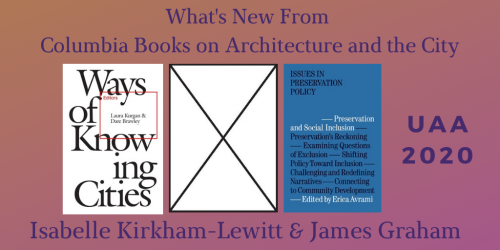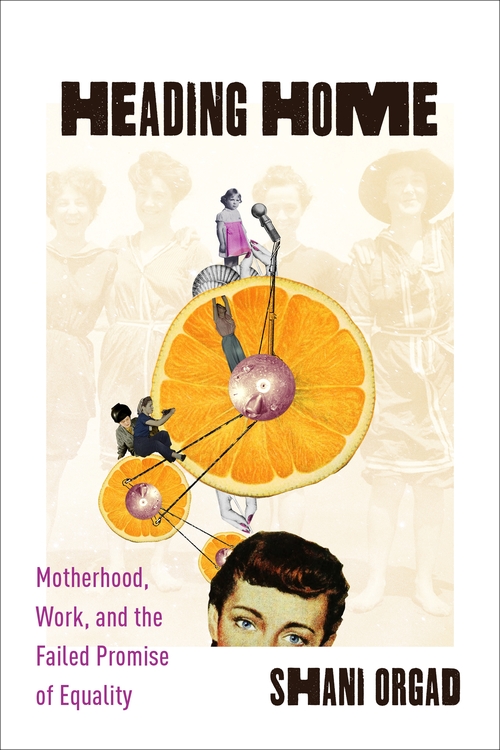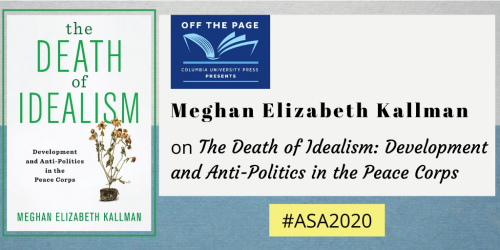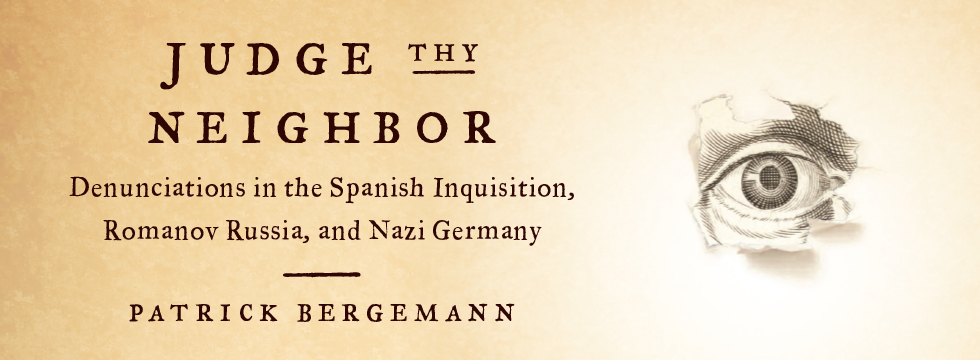Jason Hackworth on Manufacturing Decline
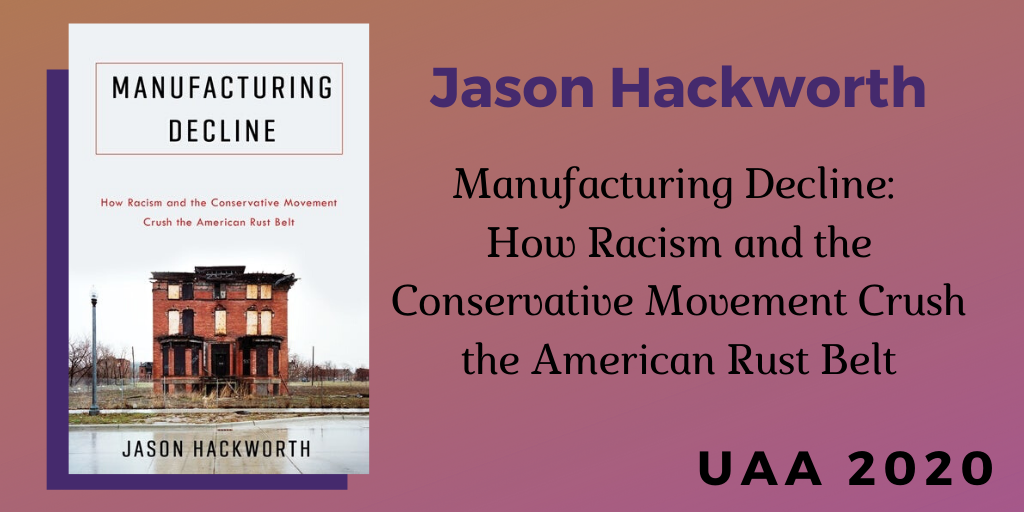
“Manufacturing Decline implicates conservative thought leadership, anti-urban interests, and elite—and ordinary—laissez-faire racism in a deliberate, decades-long degradation of U.S. cities via privation, demolition, and desertion. It is a thoughtful, stimulating, and efficient read at the intersection of urban geography, planning, and the social sciences.”
~Michael Leo Owens, author of God and Government in the Ghetto: The Politics of Church-State Collaboration in Black America
Jason Hackworth’s powerful new book, Manufacturing Decline: How Racism and the Conservative Movement Crush the American Rust Belt, came out in October of last year, and we are thrilled to be able to present it to the UAA for the first time here in our virtual booth. Hackworth pulls no punches as he traces how images and language of urban decline (with a clear and central racist edge) have been deployed by the conservative political movement since the 1970s. In his post today, he revisits the origins, arguments, and contributions of the book.
• • • • • •
With right-wing populism, xenophobia, and overt racism on the rise, pundits, scholars, and activists have all weighed in on the origin and significance of the current political moment. Manufacturing Decline uses the distressed Rust Belt city to inform such debates. It argues that the distressed postindustrial city is both a cause and consequence of a multidecade progression of racial reaction and the conservative movement. It is a cause insofar as cities like Detroit are used by conservative institutions and figures to provoke racial resentment. It is a consequence because the policies generated by these politics penalize the nonwhite distressed city in specific ways. Decline is thus manufactured in multiple ways that go beyond the simple reduction of industrial-sector employment.
Manufacturing Decline is written in an accessible style designed to convey geographical analysis to the nonacademic world. It weaves the insights of black geographies, urban studies, and neoliberalism into a single narrative and has been warmly reviewed by a number of scholars who specialize in this type of research, including the Pulitzer Prize–winning author Heather Ann Thompson, who writes:
Manufacturing Decline is a sobering yet essential read for anyone who is interested in the fate of America’s inner cities. This recovery of the politics behind—and, indeed, that created—the devastating decline of key cities such as Detroit is deeply unsettling but ultimately uplifting. As Jason Hackworth makes clear, just as America’s inner cities can be deliberately unmade to serve the political agenda of conservatives, so might they be remade in ways that could actually benefit all citizens equally.
“The recovery of the politics behind—and, indeed, that created—the devastating decline of key cities such as Detroit is deeply unsettling but ultimately uplifting.”
At its core, Manufacturing Decline is a comparative examination of large cities in the American Rust Belt. In line with recent geographical research this book is multiscalar and understands cities as both objects and ideas. Despite their reduced significance, size, and global reach, the distressed cities of the American Rust Belt are an important part of the national political dialogue and a catalyst for recent political change. Images of postindustrial wreckage in places like Detroit and Cleveland are so common in film, photography, and social media that scholars have named an entire genre after them: “ruin porn.” The conversation about why declining cities are such disfigured shells of their former selves not only consumes academic debate but also is an important part of the ongoing political dialogue about race and social policy in the United States.
Among other foci, the book explores how the imagery and idea of urban decline have been used by the conservative movement since the 1970s to advance their cause. Through a comparative study of highly abandoned Rust Belt cities, the book argues that the imagery and idea of urban decline have served as proxies for other social struggles that are difficult or unsavory to discuss more openly. In particular, conservatives have used images of urban distress to craft “dog-whistle” messages to racially resentful whites in the Midwest and beyond. These messages have been highly successful not only at consolidating the racially resentful vote for the Republican Party but also for justifying the imposition of limits on local autonomy in distressed cities. Black industrial cities and citizens have been “othered” in a highly organized way. In turn, this othering has served as the basis for an organized deprivation that has only exacerbated the flight of people and capital from such places. Decline has thus been manufactured both literally and rhetorically by an organized effort to use Rust Belt cities to advance a deprivationist agenda.
Other books on the market note the rise of neoliberalism and pin that rise on a mix of economic crises and major rightist institutions that emerged to disseminate neoliberal ideas in the 1960s and 1970s, but few consider the role of racial reaction in that shift. The main conceptual contribution of this book is to argue that the social crises of the 1960s and the racial-political realignment of the two major political parties in the United States were as influential in the neoliberal turn as economic crises of the 1970s.


